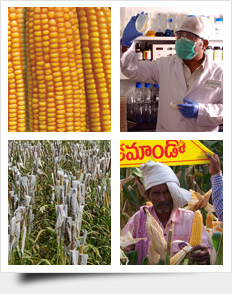
The impact of Bioseed in Asia
India
Bioseed has six breeding stations and sixteen testing stations in India. The Bioseed Research Laboratory at the International Crop Research Institute for Semi Arid Tropics (ICRISAT) in Hyderabad is one of the most advanced of its kind and has been producing path breaking results in the field of hybrid seeds, transgenic seeds and molecular breeding.
| Top |
Vietnam
Bioseed has three research stations and several testing locations in Vietnam that have produced a long line of industry leaders in corn. Several new hybrids have been certified for cultivation by the Vietnam government. In 2009 rice and vegetable hybrids have been added to the product portfolio. Other hybrids are in the pipeline at a 'pre-commercial' stage.
The Philippines
One breeding station and four testing stations have produced industry leaders in corn and rice. The corn hybrid, 9909, has set the benchmark in 'disease resistance', outperforming all other hybrids in the market, while the rice hybrid BCHR 4172 has raised the level of 'Tungro tolerance'. Several new Bioseed hybrids have been notified for cultivation by the NSB. A strong seed pipeline is in place.
Thailand
Bioseed stormed the market with SB09, the corn hybrid that introduces 'enhanced drought tolerance' in the vast rain-starved areas of the country. The success of the hybrid has bred market confidence in the Bioseed brand. More resources are now being ploughed into research infrastructure and testing systems in Thailand. A rice hybrid will soon be ready for testing.
Indonesia
Bioseed research has spawned five corn hybrids approved by the Indonesian authorities. These are out in the open market. The B-89 variety prevents stalk rot, while the B-52 variety has shown improved tolerance of acid soil stress. A rice hybrid is currently being monitored in testing stations.
| Top |

